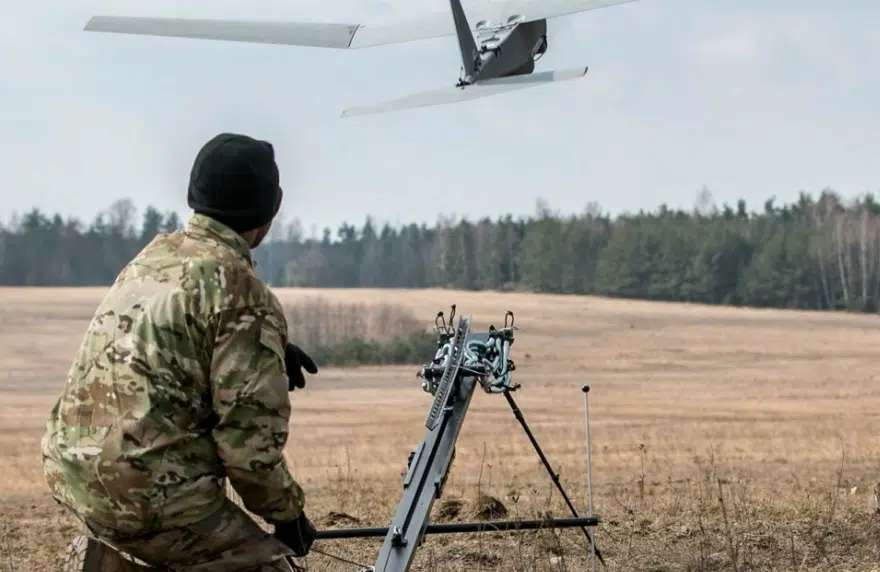In maart van dit jaar betoogde ik in mijn column “Drones Zijn Here To Stay” dat het gebruik van onbemande systemen binnen de krijgsmacht alleen maar zou toenemen. De onbemande systemen hebben inmiddels bewezen effectief te kunnen zijn. Daarnaast is de inzet van deze systemen zonder gevaar voor eigen personeel. Er is echter nog een belangrijk argument hieraan toe te voegen.
Na twintig jaar is de militaire aanwezigheid van ‘het Westen’ in Afghanistan beëindigt en heeft de Taliban de leiding van het land weer op zich genomen. Of het opnieuw een ‘safe-haven’ voor terroristengroeperingen zal worden, moet de tijd uitwijzen. Met de terugtrekking uit Afghanistan lijkt de tijd van breed gesteunde en door bijvoorbeeld de VN gemandateerde internationale coalities en bijbehorende operaties in ‘probleemlanden’ voorbij te zijn. Rusland en China zullen naar verwachting niet nalaten hun veto uit te spreken, zodra zij andere belangen hebben en tevens het uitgangspunt hanteren zich niet te willen mengen in interne problemen van andere landen. Het in de toekomst sturen van grondtroepen om bijvoorbeeld terroristengroeperingen uit te schakelen ligt dus niet meer voor de hand. Maar als er een aanslag wordt gepleegd, is een ingrijpen veelal wel noodzakelijk teneinde herhaling te voorkomen of als strafmaatregel.
Het toenemende probleem om een snelle interventie met grondtroepen uit te voeren vraagt om andere oplossingen. De meest voor de hand liggende is dan vanuit de lucht. De grote operationele voordelen hiervan spreken voor zich: snelheid, hoogte (en daardoor minder kwetsbaarheid) en bereik. Maar er bestaat ook tegenzin om eigen mensen in gevaar te brengen, zeker als er geen reddingstroepen op de grond zijn om de bemanning van een eventueel neergestort of neergeschoten vliegtuig in veiligheid te brengen. Onbemande systemen bieden de mogelijkheid om effectief op te treden zonder personeel in gevaarlijk gebied te brengen.
Om de inzet van onbemande systemen snel en precies te laten zijn moet eerst een goede situationele kennispositie worden opgebouwd. Continue observatie vanuit het ruimte domein is daarvoor een voor de hand liggende oplossing. Op basis van zo verkregen informatie kan een meer precieze inzet van onbemande verkenningssystemen plaatsvinden. Door langdurige observatie met gecombineerde sensoren vanuit de ruimte en vanuit de lucht, kunnen patronen worden gevonden en kan attributie plaatsvinden om vast te stellen wie achter welk soort aanslagen zit. Om vervolgens snel en effectief in te kunnen grijpen worden de onbemande systemen voorzien van wapens die door de mens in de op afstand geplaatste cockpit kan worden afgevuurd, alles passend binnen een geldige geweldsinstructie.
De conclusie is dat in een onveilige wereld, nu en in de toekomst, onbemande systemen een belangrijke waarde hebben in de militaire gereedschapskist. De ervaring leert dat het gebruik van onbemande systemen sterk aan populariteit heeft gewonnen[1], met name door de effectiviteit[2] van haar inzet en de relatief lage kosten[3]. De verwachting is dat het gebruik ervan alleen maar zal toenemen!
[1] The Obama Doctrine, David Rohde, Foreign Policy; Washington, issue 92,Mar/Apr 2012: P65-69. De strijd in Nagorno-Karabach, oktober 2020, Proliferatie en verkoopsuccessen van Turkse Drones (NOS 7 oktober 2021), Game of Drones, Alexandra Sander, CNAS 2016
[2] Hezbollah and the use of drones as a weapon of Terrorism, Milton Hoenig, Public Interest Report Spring 2014 volume 6 number2. Drone warfare, John Kaag&Sarah Kreps, Polity Press 2014.
[3] Civil and military drones, Tania Latici, European Parliamentary Research Service, October 2019





